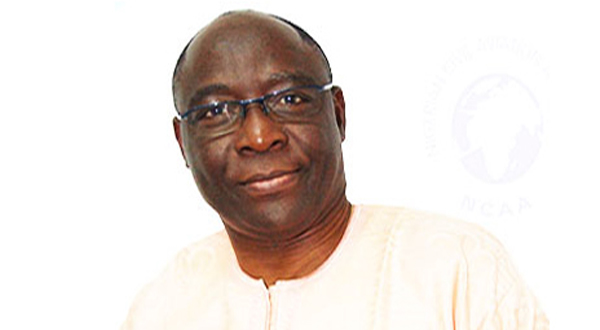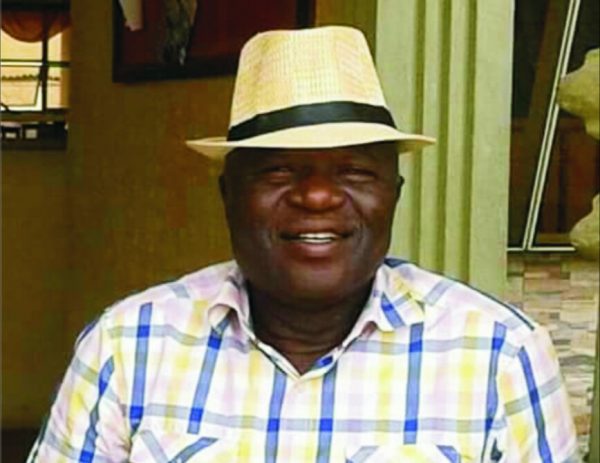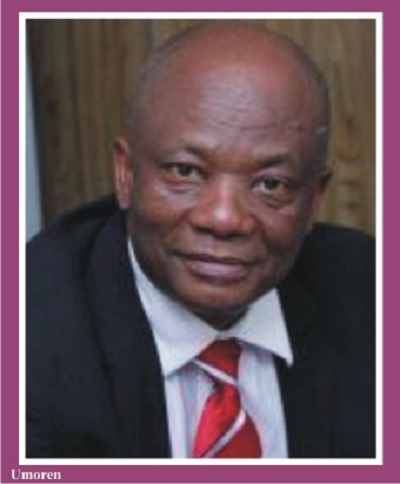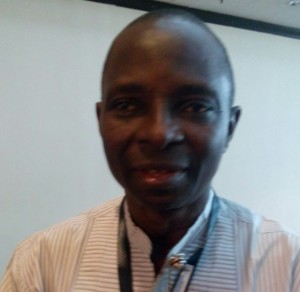How Cargo Is Guaranteed For National Fleet – Dakuku, DG,NIMASA
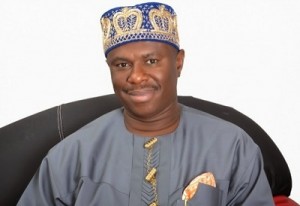
Dr. Dakuku Peterside is the Director-General of Nigerian Maritime Administration and Safety Agency(NIMASA). You need to meet him to have a proper self-assessment of his person, work capability, leadership and relationship management skill. In this exclusive interview with MMS Plus, Dakuku talks about creating a maritime niche for the country, how the Cabotage Vessel Financing Fund(CVFF) will be disbursed, what the members of staff should expect in the promotion interview. Excerpt.
How has it been on the saddle as the Director General of Nigerian Maritime Administration and Safety Agency (NIMASA) in the last ten months?
It has been challenging and interesting. We have been able to learn new developments in the industry and encountered some of the brightest minds in the industry. We have also had to tackle an agency that was virtually run down even though it had potentials. We had a herculean task of putting the agency back on track and ensuring Nigerians derive the benefits from the maritime industry. I think that we have made progress. We started with bringing all stakeholders together to draw up the NIMASA Medium Term Plan to guide the agency to achieve its core mandate as well as advancing Nigeria’s maritime goals. We have been strictly adhering to this goal with the support of the Hon. Minister of Transport, Rotimi Amaechi.
In the course of your interview earlier you talked about having a national fleet and having a niche for the maritime sector. NIMASA can carve out a niche for the maritime sector, but what should this niche be?
Well, there are a number of things. If you look at the whole of Africa, we don’t have a transshipment hub and Nigeria can be the transshipment hub. The other thing is the oil and gas hub for the maritime industry or some sort of logistics hub for Africa.
We are also looking at the possibility of doing a base for ship recycling. In Nigeria, we are endowed with smart people and the same way the Philippines and Chinese export sea men, having the highest number of seafarers globally, Nigeria can be known for having the highest number of seafarers in Africa if we put our acts together. So, we are working on a number of these initiatives and very soon we would come out with a clear roadmap on how to create a niche for ourselves in the global maritime industry.
You talked about using part of the CVFF to support the operators or investors who are willing to invest in the national fleet, in what ratio and with what guidelines?
The Minister set up a committee which is headed by the Executive Secretary of the Nigerian Shippers’ Council (NSC), Barr. Hassan Bello. Their function is to operationalize the establishment of a national shipping fleet and part of what they are looking at is the possibility of investing part of the Cabotage Vessel Financing Fund (CVFF) to support Nigerians to acquire shares in the proposed national fleet. As I speak to you, no one can put a number to ratio. No one can say it is 40-60 or 70-30 at the moment.
On the 60% funds or equity you are looking for, I learnt that you have gotten some financial commitment from a multilateral agency. How much is it?
Well, I don’t know how far the committee for that has gone. I haven’t had the opportunity to see their most recent report and I don’t even know if they have gotten financial commitment. Honestly, I don’t know.
Looking at Rotterdam rules, you were talking of 40-40-20 when floating the national fleet in terms of cargo sharing. We have government support at federal, state and local levels but how many of these cargoes do we have to sustain the fleet and compete with the likes of Maersk line?
I’ m convinced that we have enough cargo to support the national fleet. There is something government support gives; very often it boosts compliance to the rules. With the government playing the lead role in supporting these vessels, the tendency for other organizations to follow suit is very high. The proposed national fleet would have enough cargo to sustain it.
You are also talking about training schools and maritime university. Can you explain this?
The shipyard is going to be a business decision. The location of a modular floating dockyard has to be a business location.
You talked about 90%of Nigerian vessels being dry-docked abroad. Do we have a business sense in this?
I have read the business case and I can’t think of a better investment than that in recent times. When we went to Netherlands, I discovered that the minimum life-span of a floating dock is 100years. The one we went to see was built in 1903, others in 1914 and 1923. None of them is less than 100years yet they are still working fine, generating a lot of money. They are still servicing different vessels and none of them is below 120meters by 23meters.
It is something that has a very long life-span and if we make this investment the numbers show that we could generate as much as N2billion yearly and in 10years we can recoup the capital and begin to enjoy the benefits. For us, the floating dockyard would support the case of financial sustainability for both the agency and the dockyard.
Recycling is a different industry. It is often called the ship graveyard. We don’t want people to say we just want to remove wrecks. The issue is whether we could do a ship-breaking plant that would maximize the benefit of having steel within our country. We are not doing removal of wrecks right now and we are also not selling the wrecks. NIMASA is going to publish a guideline in the next few weeks about wreck removal.
There seems to be some level of discontent among staff with the promotion interview scheduled, especially where over 200 people are going for about 46 positions in the chief cadre. How do you overcome the dilemma?
There is no dilemma. The laws say promote people based on openings. The NIMASA condition of service and the Federal Civil Service conditions are clear on the issue. If what you are saying is correct, after the interview, the top persons would be taken to fill the available positions.
If what is open for Chiefs is 46, the top 46 will be promoted. I don’t think that is an issue at all, because you can’t promote people if there are no openings.
For example, you can’t employ anyone to the office of the DG, Executive Directors or Directors because all these positions are occupied and it doesn’t matter how qualified the person to be promoted is. He just has to wait until there is an opening.
Plans to move some staff to zones, how far?
It is progressing very well. There are two things that we are waiting for. One is that we are expecting the Ministry to send us the final approval on the structure that they have approved for the agency.
The second thing is that the Board of Directors of NIMASA intends to issue a statement on that and we recently approved the building of new zonal offices for Warri zone, Eastern and Northern zones for using the public private initiatives. What this means is that those who have funds would build the structure for NIMASA but NIMASA would pay back gradually. If we conclude all the processes by next year we should have brand new offices in these locations. The board has just approved this, but it has not been implemented.
You said there were some challenges in terms of Cabotage enforcement. How do you match the capacity?
The most important thing is not capacity of personnel. It is the actions of platforms to do the enforcement. We are bringing such platforms so that when people go out for enforcement they would check documents as well as manning levels to ensure they comply with the laws of Nigeria and when they don’t comply we can detain these vessels. I believe that if we address the issue of platforms, we would have substantially addressed most of the challenges we are facing in the Cabotage regime.
Did you recover some of the platforms from Global West?
No. the platforms were seized by the Economic and Financial Crimes Commission (EFCC) and they are in the Custody of the Nigerian Navy. They are NIMASA assets but they are under investigation, so they were seized by the EFCC and handed over to the Navy, pending the conclusion of investigations.
Where does the place of tonnage come in NIMASA’s core mandate?
Tonnage development is one of the conventions that Nigeria is signatory to. It is one of the responsibilities of the maritime administration of flag state administration of a country. In this case, the administration is NIMASA.



